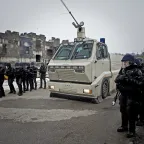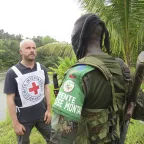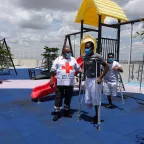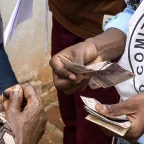Weapons and law enforcement operations
States often face situations in which officials must use force to maintain or restore public security, law and order in armed conflicts or other situations of violence. Weapons, law enforcement and …
States often face situations in which officials must use force to maintain or restore public security, law and order in armed conflicts or other situations of violence. Weapons, law enforcement and …

It is those who carry weapons who can kill – and be killed. It is also they who can facilitate or hinder humanitarian action. The ICRC therefore maintains a dialogue with all weapon bearers, State …

After a life-changing injury, physical rehabilitation is the key to a full and independent life. Helping those wounded in armed conflict to recover functioning and live a full life. Bringing …

The ICRC is funded by voluntary contributions from the states party to the Geneva Conventions (governments); National Red Cross and Red Crescent Societies; supranational organizations (such as the …

Try one of the following resources:
Created in 1863, the ICRC library, alongside the ICRC archives, provides an indispensable documentary reference on the organization itself and international humanitarian law.
International humanitarian law is based on a number of treaties, in particular the Geneva Conventions of 1949 and their Additional Protocols, and a series of other instruments.
Customary international humanitarian law consists of rules that come from "a general practice accepted as law" and that exist independent of treaty law.